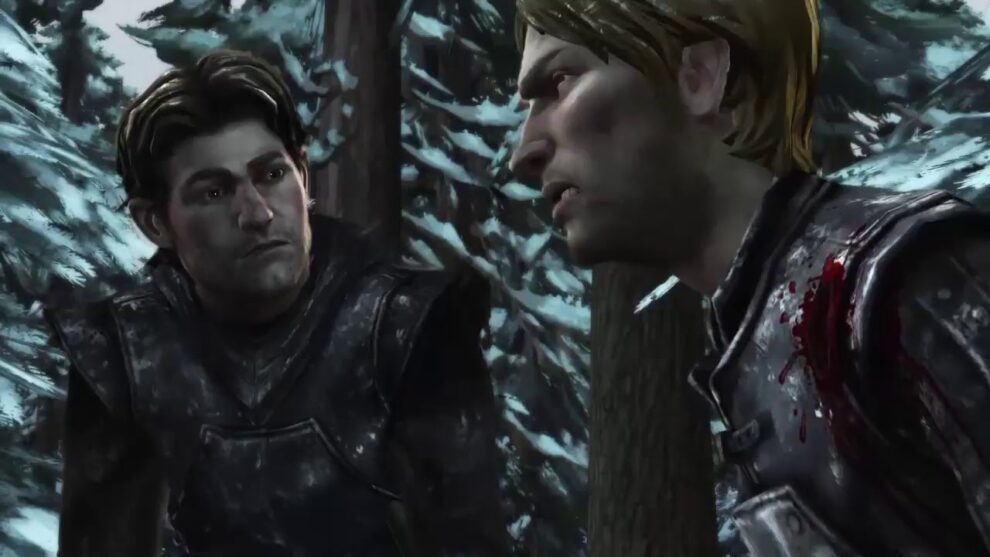Warner Bros. Games has confirmed a significant restructuring of its video game division, a bold move that sees the company narrowing its development focus to four cornerstone franchises: Harry Potter, Mortal Kombat, the DC Universe, and Game of Thrones. This strategic pivot comes as Warner Bros. Discovery prepares for a major corporate split, with the gaming arm set to become a part of the new Streaming & Studios company by mid-2026. The shift signals a clear commitment to leveraging established, high-performing intellectual properties in the gaming space, aiming for a “fewer but bigger” approach to future releases.
Key Takeaways
- Warner Bros. Games is undergoing a significant restructuring to focus on four tentpole franchises: Harry Potter, Mortal Kombat, DC Universe, and Game of Thrones.
- This strategic shift follows a challenging period, including the commercial underperformance of Suicide Squad: Kill the Justice League and the closure of several studios.
- The new “fewer but bigger” strategy aims to leverage the proven success and billion-dollar potential of these core IPs.
- New leadership appointments have been made, with senior vice presidents now overseeing dedicated teams for these key franchises.
- The restructure aims to drive profitability and growth for Warner Bros. Games, which will operate under the new Streaming & Studios division of Warner Bros. Discovery as the parent company splits in mid-2026.
The decision to streamline its gaming efforts arrives on the heels of a turbulent financial period for Warner Bros. Games. The first quarter of 2025 saw a substantial 48% decrease in gaming revenue compared to the previous year. This downturn has been largely attributed to the disappointing commercial performance of Suicide Squad: Kill the Justice League, a live-service title that failed to meet sales expectations. The company also faced scrutiny following the closure of several studios, including Player First Games (developers of MultiVersus) and Monolith Productions, which reportedly led to the cancellation of a Wonder Woman game.
This new direction, however, is not entirely unexpected. Warner Bros. Discovery CEO David Zaslav had previously hinted at a strategy emphasizing a more concentrated portfolio of high-value titles. The current restructuring is a direct execution of that vision, focusing on franchises that have consistently demonstrated strong consumer engagement and financial success.
The Power of Proven Franchises The chosen franchises represent some of the most recognizable and lucrative in entertainment. Each of these IPs has individually surpassed $1 billion in consumer spending through various mediums, making them prime candidates for dedicated game development.
Harry Potter: A Magical Mainstay The Harry Potter franchise remains a colossal force in entertainment, and its gaming ventures have largely mirrored that success. Hogwarts Legacy, released in 2023, stands as a prime example, achieving massive critical and commercial acclaim. Its success likely played a significant role in solidifying the Harry Potter brand as a core pillar for Warner Bros. Games. Future games are expected to build upon this foundation, potentially exploring new narratives or expanding on the open-world format.
Historically, Harry Potter has had a long and varied history in video games, dating back to titles like Harry Potter and the Sorcerer’s Stone in 2001. More recent releases include Harry Potter: Magic Awakened (2021) and the upcoming Harry Potter: Quidditch Champions (2024), demonstrating a continuous interest in exploring different genres within the wizarding world. The focus on this franchise means we can expect a steady stream of new games and experiences for fans.
Mortal Kombat: The Enduring Fighter Mortal Kombat has been a cornerstone of fighting games for decades, known for its brutal combat and iconic characters. The latest entry, Mortal Kombat 1, released in 2023, continued the series’ legacy, despite some internal reports suggesting it didn’t hit the same sales heights as previous installments. The enduring popularity and dedicated fanbase of Mortal Kombat make it a natural fit for continued investment. NetherRealm Studios, the acclaimed developer behind the recent Mortal Kombat titles and Injustice series, is expected to remain central to this franchise’s future. The promotion of Shaun Himmerick, former NetherRealm studio head, to Senior Vice President of Development overseeing Mortal Kombat and DC Universe games, underscores the importance of this studio and its expertise.
The Mortal Kombat series has seen numerous iterations since its debut in 1992, spanning multiple console generations and maintaining a consistent presence in the fighting game community. Its consistent performance and ability to generate significant revenue through game sales and downloadable content make it a reliable asset for Warner Bros. Games.
DC Universe: Heroes, Villains, and Vast Potential The DC Universe, with its expansive roster of heroes and villains like Batman, Superman, Wonder Woman, and The Flash, offers immense narrative and gameplay opportunities. While Suicide Squad: Kill the Justice League faced a difficult launch, previous DC-based games, particularly the Batman: Arkham series from Rocksteady Studios, have achieved widespread critical acclaim and commercial success. The strategic focus on DC aims to capitalize on the universe’s inherent appeal and its established gaming pedigree.
The DC Universe has a rich history in gaming, extending beyond the Arkham series to include titles like Injustice: Gods Among Us and DC Universe Online. The company’s commitment suggests that new games, potentially including a new Superman game that was hinted at by Warner Bros. Discovery’s CEO, will aim to capture the grandeur and depth of the DC mythology, moving beyond the challenges of recent releases.
Game of Thrones: Westeros Awaits Game of Thrones, a global phenomenon, presents a unique opportunity for immersive gaming experiences. While the television series concluded, the world of Westeros and its intricate lore continue to captivate audiences. Gaming adaptations have varied in the past, including Telltale Games’ episodic adventure and mobile strategy titles. The renewed focus indicates a desire to develop larger, more ambitious games that truly capture the scale and political intrigue of George R.R. Martin’s world. Yves Lachance, the former WB Games Montréal studio head, has been promoted to Senior Vice President of Development for Harry Potter and Game of Thrones games, indicating a dedicated push for this franchise.
Past Game of Thrones games have explored various genres, from role-playing games to strategy titles. The potential for future projects could include grand strategy games, open-world adventures, or even narrative-driven experiences that delve into unexplored corners of Westeros. The challenge for Warner Bros. Games will be to deliver titles that meet the high expectations of the franchise’s dedicated fanbase.
New Leadership, New Direction The restructuring includes key leadership appointments designed to align with the new strategic priorities. Yves Lachance, who previously led WB Games Montréal (known for Gotham Knights), has been appointed Senior Vice President of Development, overseeing the teams dedicated to Harry Potter and Game of Thrones titles. Shaun Himmerick, formerly the head of NetherRealm Studios, now serves as Senior Vice President of Development for Mortal Kombat and DC Universe games. Additionally, Steven Flenory, former chief of WB Games New York, takes on the role of Senior Vice President of Central Tech and Services, responsible for all game and publishing technology, customer service, quality assurance, and user research. These leaders will report to J.B. Perrette, Warner Bros. Discovery’s CEO of Global Streaming and Games, who will continue to oversee the entire WB Games division.
These appointments reflect a deliberate move to place experienced and proven leaders at the helm of these critical franchises, ensuring focused development and strategic alignment. The goal is to avoid the pitfalls of past projects and consistently deliver high-quality games that resonate with players and contribute significantly to the company’s financial performance.
The “Fewer but Bigger” Philosophy The underlying philosophy driving this restructuring is “fewer but bigger.” This approach prioritizes large-scale, high-quality releases for established franchises over a broader, more diversified portfolio. The aim is to minimize risk by investing in properties with proven appeal and established fanbases, while maximizing the potential for significant returns.
This shift comes after a period where a more expansive strategy, including endeavors into live-service models that proved challenging, resulted in considerable financial losses. The company’s Q1 2025 financial report highlighted an operating loss, with Suicide Squad: Kill the Justice League being a notable contributing factor. By concentrating resources on fewer, more impactful projects, Warner Bros. Games hopes to achieve greater profitability and sustainable growth.
Public discussions on platforms like Reddit and Quora often highlight player desire for polished, content-rich games over rushed, microtransaction-heavy experiences. The “fewer but bigger” strategy, if executed well, could align with these player expectations, fostering greater trust and engagement within the gaming community. Players consistently express a preference for games that deliver on their promises and offer substantial value.
What This Means for the Future The restructuring marks a pivotal moment for Warner Bros. Games. While the closure of studios and cancellation of some projects have caused concern, the clear focus on established, successful franchises could lead to more consistent, high-quality output. The company aims to move beyond the recent financial setbacks and solidify its position as a major player in the gaming industry by leaning into its most valuable assets.
This strategic alignment also coincides with the larger corporate changes at Warner Bros. Discovery. The split into distinct entities, with the gaming division under the Streaming & Studios umbrella, suggests a more integrated approach to content creation across film, television, and games. This could potentially lead to more synergistic projects that leverage the company’s vast entertainment catalog.
For gamers, this means a more predictable pipeline of titles from beloved universes. While the pace of new announcements might slow down in the short term, the emphasis on quality and established brands suggests that future releases from Warner Bros. Games could be more impactful and consistently meet fan expectations. The long-term success of this strategy will depend on the execution of these ambitious projects and the ability of the newly structured teams to deliver on the promise of their chosen franchises.
Frequently Asked Questions (FAQ)
Q1: Why is Warner Bros. Games restructuring?
A1: Warner Bros. Games is restructuring to focus on its most successful and valuable intellectual properties after a period of financial challenges, including the commercial underperformance of some recent titles. The aim is to adopt a “fewer but bigger” strategy for game development.
Q2: Which franchises will Warner Bros. Games focus on?
A2: The company will concentrate its game development efforts on four key franchises: Harry Potter, Mortal Kombat, DC Universe (including characters like Batman and Superman), and Game of Thrones.
Q3: Has Warner Bros. Games shut down any studios as part of this restructure?
A3: Yes, prior to this official restructure, Warner Bros. Games closed several studios, including Player First Games and Monolith Productions, leading to the cancellation of some in-development games like a Wonder Woman title.
Q4: Who are the new leaders in Warner Bros. Games’ restructured division?
A4: Yves Lachance is the new Senior Vice President of Development for Harry Potter and Game of Thrones games. Shaun Himmerick is the new Senior Vice President of Development for Mortal Kombat and DC Universe games. Steven Flenory is the Senior Vice President of Central Tech and Services.
Q5: What is the “fewer but bigger” strategy?
A5: The “fewer but bigger” strategy means Warner Bros. Games will concentrate its resources on developing a smaller number of high-quality, large-scale games based on its most popular and financially successful franchises, rather than pursuing a broader range of projects.
Q6: How does this restructure relate to Warner Bros. Discovery’s overall plans?
A6: The restructuring aligns with Warner Bros. Discovery’s larger corporate strategy, which will see the company split into two entities. Warner Bros. Games will operate under the new Streaming & Studios division, suggesting a more integrated approach to content across different media.









